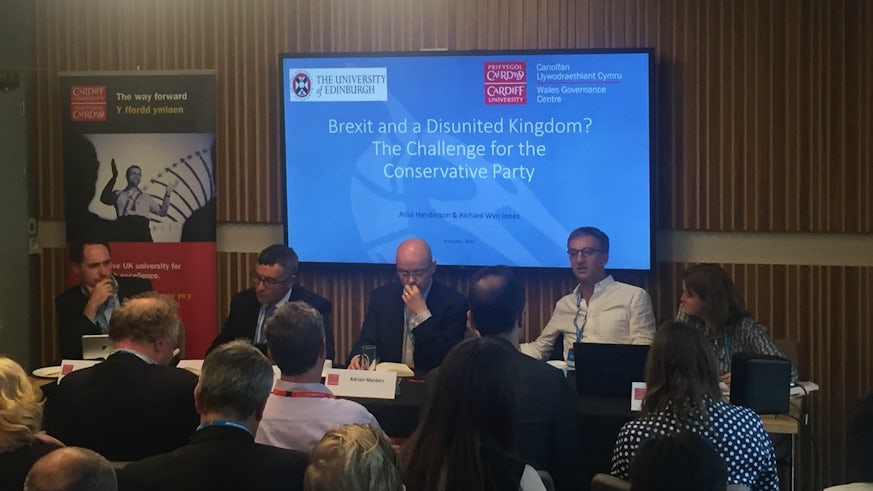Who speaks for England?
6 October 2016

The Conservative Party risks losing the trust of voters as the party best placed to defend Englishness, delegates at the party’s conference have heard.
The claim by researchers from Cardiff and Edinburgh universities comes in response to data revealing a decline in the perception that the Conservatives are best able to stand up for England.
The findings, taken from the latest Future of England survey were presented at a fringe meeting of the Conservative Party's Annual Conference in Birmingham, on 4th October.
Despite this lack of trust, Conservative Party policies on the governance of England enjoy substantial support among the electorate, with ‘English Votes for English Laws’ always the most popular option.
The latest evidence is consistent with previous survey findings, indicating ongoing bitterness about the perceived benefits that other UK nations - in particular Scotland - receive from being part of the Union.
The survey also found a close relationship between attitudes towards UK membership of the European Union and attitudes toward England’s place in the UK, with a majority of those identifying as “English not British” intending to vote for the UK to leave EU, whereas those who identified predominantly or exclusively as British more likely to vote to remain.
With the EU referendum result exposing new fault lines between the nations of the UK, the survey presents fresh evidence on the challenges facing the Prime Minister as the UK prepares to negotiate its withdraw from the European Union.
Edinburgh University’s Professor Ailsa Henderson, one of the leaders of the project, said: “The evidence from the Future of England Survey suggests that while the Conservatives’ policies on English governance are popular, fewer voters perceive the party as best able to stand up for England.
"As a party in government it faces a considerable challenge: a significant majority do not believe that Westminster works in the best long-term interests of England.”
Professor Richard Wyn Jones, from Cardiff University’s Wales Governance Centre, added: “Theresa May will have to show that she is responsive to the concerns of English voters while holding the UK together, as it enters an unprecedented period of change.”
The 2016 Future of England Survey was conducted between 10 - 21 June 2016, with a sample size of 5103. The project is led by Professor Roger Scully and Professor Richard Wyn Jones (Cardiff University) and Professor Ailsa Henderson and Professor Charlie Jeffery (University of Edinburgh).
Share this story
Undertaking innovative research into all aspects of the law, politics, government and political economy of Wales, as well the wider UK and European contexts of territorial governance.

